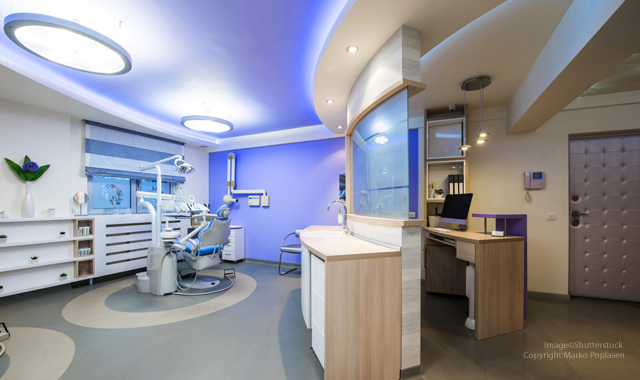3 ways to manage your second-highest expense
If you're looking to make your practice more profitable (who isn't?), start with your biggest expenses.

When it comes to managing expenses in your practice, there are dozens of categories to evaluate: equipment, technology, loan costs and interest rates, sundries, marketing, and on and on they go.
Many practice owners are quick to shop-out what they believe are the most obvious expenses, but few understand the impact of one of the largest expenses and how it can be dramatically reduced to increase profitability. The highest expense for most practices is payroll, followed by real estate.
Related article: Be a real estate winner
Real estate encompasses your monthly rent or mortgage payments, along with the property’s operating expenses, maintenance fees, utilities and janitorial costs. If you consider these top two expenses, payroll and real estate, only one of them is really negotiable.
With payroll, you can either pay people their value or they usually find another job that will. You may decide that you can cut staff, but if you need people you need to pay them what they deserve or they will eventually leave.
Real estate however, is 100% negotiable. You have the choice of leasing or owning, as well as being in an office building, retail center, a stand-alone building, or large medical complex with many other providers. You can choose the size of your space, the design and the landlord you want to work with - or to be your own landlord.
And if you do own, you get to decide whether to buy an existing building, an office condo, or to develop your own building from the ground-up. When negotiating the economic terms of a lease, you get to have a say in the length of lease, the desired concessions including build out period, tenant improvement allowance, free rent, lease rates, annual rate increases and many other provisions.
Related article: 5 important things to know when renewing your dental office lease
With this many choices to evaluate - understanding that each one affects the final economic outcome - why is it that so many practices fail to capitalize on their real estate opportunities? The short answer is that most practice owners and administrators simply don’t have the knowledge and expertise in commercial real estate to understand how to make the most of these opportunities. They view real estate as a necessary evil instead of an incredible opportunity to improve profitability, reduce expenses and improve the quality of their patients’ experience. When the correct approach is taken, you may actually look forward to it instead of dreading your real estate negotiation.
Up next: Three key ideas that will help you make the most of your next real estate transaction.
1. Timing
Every type of transaction has an ideal timeframe to start the process. When starting too early or too late, you communicate to the landlord or seller that you don’t really know what you’re doing. When that message is communicated, it hurts your ability to receive the best possible terms.
For example, don’t wait for your landlord to approach you on a lease renewal negotiation. Start by consulting with a professional so you can understand the ideal timeframe to start your transaction, come up with a specific game plan for what you want to achieve, and then you be the one to approach your landlord with renewal terms.
2. Representation
Landlords and sellers prey on unrepresented tenants who don’t really know the market or what their options are. If the tenant was a Fortune 500 company, the landlord would approach them with a high level of respect, expecting that they either have a real estate broker hired to represent them or have a team of professionals internally that are well equipped to handle the transaction.
In contrast, when a landlord or seller starts speaking with a tenant who isn’t represented, and who they don’t believe knows the market as well as they do, that tenant is not going to get the same level of respect through the process. This is because the landlord senses an opportunity to take advantage of a small tenant who is not an expert, doesn’t have a full complement of real estate knowledge and skills, and who doesn’t have adequate representation.
Related article: Five myths your landlord wants you to believe
When you understand that commissions are paid in commercial real estate just like they are in residential real estate-they are set aside in advance for two parties, not just one-then you understand there aren’t any savings by not having a broker. And if there aren’t any savings by not having a broker, then showing up without one only further detracts from your credibility.
3. Leverage and posture
It is nearly impossible to emerge victorious from a negotiation without leverage and posture which are created by having multiple options in the market. If you limit yourself to one property, you are at the mercy of that owner. Since most landlords and sellers negotiate professionally, it is easy for them to know when you don’t have other viable options.
Simply telling a landlord that you have a proposal from another landlord won’t give you a strong enough posture. Most landlords look at unrepresented tenants and assume they do not know the market, do not understand all their options, and are not really serious about making the landlord compete for their business.
Leverage and posture are created when you have the right timing, professional representation, an understanding of all your available options and a detailed game plan of what you want to accomplish in order to capitalize on the market.
These three key ideas are the first of many factors that allow healthcare tenants and buyers to reduce their second highest expense - which dramatically impacts profitability and cash flow.